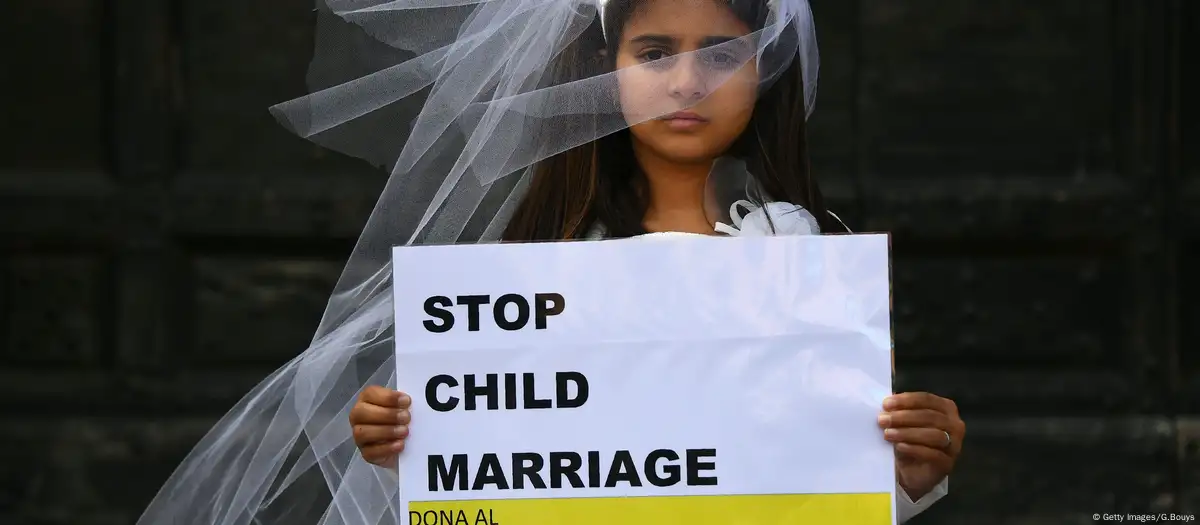Salaamun alaykum, dear readers!
It is commonly believed, based on Hadith accounts of the prophet Muhammad’s life as found in Bukhari, that Aisha, the youngest of his wives, was 6 years old when married to him and 9 years old when he consummated the marriage with her via intercourse.
However, the collection of authentic hadiths and other historical sources provide conflicting information regarding this matter.
Some hadiths indicate that she was 6 years old when married, and others indicate that she was at least 15 years old when married, and 18 years old when the prophet consummated the marriage with intercourse.
But the commonly-accepted view is based on narrations such as this:
- Narrated from Urwah via his son Hisham: that the Prophet married her [Aisha] when she was six years old and he consummated his marriage when she was nine years old. Hisham said: I have been informed that `Aisha remained with the Prophet for nine years (i.e. till his death). (Bukhari no. 5134).
Evidence from Historical Biographies
The first matter involves the age of her older half-sister Asma ibn Abi Bakr. According to historians like ibn Kathir, al-Dhahabi, and others, Asma was at least 10 years older than her sister Aisha.
Ibn Kathir writes, in his work “Al-Bidayah” that, “She [Asma] was elder to her sister [Ayesha] by 10 years”.
But al-Dhahabi writes in “Siyar a’lam al-nubala” that the age difference between the two is 13-15 years, so there is a slight inconsistency there.
Nonetheless, the reason why this is important is because it is commonly accepted that Asma died at the age of 100 at the year 73 AH, which corresponds to 695 AD.
If we assume the commonly-accepted date that the prophet first consummated with Aisha (623 AD) is correct, then at 623 AD, Asma was 28 years old. Given the age difference, this means Aisha was 18 years old when the prophet consummated the marriage with her by intercourse.
- Ibn Kathir writes in Al-Bidayah that, “She [Asma] saw the killing of her son during that year [73 AH], as we have already mentioned, and five days later she herself died. According to other narratives, she died not after five days but 10 or 20, or a few days over 20, or 100 days later. The most well-known narrative is that of 100 days later. At the time of her death, she was 100 years old.”
Evidence from Hadith
The second line of evidence is found in Hadith, such as that from Bukhari in which Aisha remembers very well the frequent visits the prophet made to her home day and night before Abu Bakr attempted migration to Abyssinia.
If the second migration to Abyssinia was in the year 615, that would render Aisha’s age as 1 year old at the time if we believe that she was married at the age of 6, which would not make sense. How would she, as a 1-year-old, remember the prophet’s visits to her home before the migration to Abyssinia?
But if she was married (and consummated the marriage) at age 18, Aisha would have been 9 years old when her father migrated to Abyssinia, which makes much more sense as far as memory is concerned.
- “Narrated ‘Aisha: I never remembered my parents believing in any religion other than the true religion (i.e. Islam), and (I don’t remember) a single day passing without our being visited by Allah’s Messenger (ﷺ) in the morning and in the evening. Then when the Muslims were put to test, Abu Bakr set out migrating to the land of Abyssinia… (Bukhari no. 3905)
Third, one scholarly-authenticated Hadith from Bukhari states that Aisha said she was a young girl (jariyah) playing when the 46th verse of Surah al-Qamar (the 54th Surah) was revealed. There is no fixed age for the term “jariyah” but it typically refers to elementary-school age girls. The verse mentioned in the Hadith is verse number 46 of this Surah, which was revealed while Muhammad was still in Mecca. This Surah is believed to have been revealed in the year 614.
However, Aisha was not an infant (sibyah) in the year 614, but a “jariyah (young girl)” past the toddler age playing, so the year 614 cannot be her birth year.
But if she was born in the year 605 or 606, she would have been 8 years old (a young girl) during the year 614. As a result, she would be 18 years old if she consummated her marriage in 623 AD.
- …The following was revealed to Muhammad in Mecca while I was a young girl (jariyah) playing “Indeed, the Hour is their appointed time and the Hour is more disastrous and bitter.” Sura Al-Baqara and Sura An-Nisa were revealed while I was with him.” … (Bukhari no. 4993)
Also, according to Ibn Kathir in his book, he wrote regarding the early believers among the women, that, “Out of the women … Asmaa and Aisha who was a young girl. These believed in the years when the prophet was preaching secretly for fear of persecution.”
- If Aisha was a young girl who believed in the prophet before he began preaching openly at the year 614 AD, how could Aisha have been born at the year 614 AD as is commonly accepted?
- If Aisha’s true age was 18 when she consummated her marriage to the prophet, that would make her real birth year to be 605 AD, thus making her an 8 or 9-year old girl by the time the prophet began to openly invite to Islam during the year of 614.
Hisham ibn. Urwah
So what is the cause of this discrepancy? One common factor is that most Hadiths in the Sahih (scholarly-authenticated) collections is narrated by a problematic figure named Hisham ibn Urwah.[2] He supposedly received this information from his father Urwah.
Ibn Hajar writes about this person, saying that Malik ibn Anas (who authored one of the earliest Hadith collections, known as the Muwatta) stated that his narrations were generally reliable, but became unreliable after he moved to Iraq during his older years.
- The historian al-Dhahabi in his work “Mizal al-Itdal” wrote that Hisham’s memory suffered badly as he aged.
Some historians, like Dr. Joshua Little, performed an isnad-cum-matn analysis and geographical analysis of this Hadith, because he found explanations like “Hisham was senile” to be unsatisfactory from an academic perspective.[3]
His findings, after applying the analysis, revealed that regardless of whatever isnads the various versions of this Hadith are attributed to, the original Hadith that all variations later came from is one from Hisham ibn. Urwah. He was the one who created this Hadith.
- This is further supported by the complete absence of this Hadith in all early Medinan sources, such as Malik’s Muwatta and other biographical works, even though such sources regularly cited people like Urwah (Hisham’s father), and there were legal debates going on in Madina at the time for which Aisha’s marital-age Hadith would have been useful to cite.
- So it would not make sense from a historical critical perspective for isnads to include early Medinan figures (like al-Zuhri) for this Hadith.
So according to Dr. Little’s analysis, the Hadiths about Aisha’s child marriage most likely did not even come from Urwah himself, but his son Hisham made it up and falsely said his father told him this information.
Now the question is, why would Hisham ibn. Urwah do something like that?
Dr. Little states that it is common knowledge that this Hadith was immediately used by Sunnis to increase Aisha’s status and defend her from criticism against Shia Muslims.
- The reason is: if Aisha was married as a child, it helped the Sunnis support the idea that Aisha was the prophet’s favorite wife because she was the prophet’s only virgin wife. As a result, it would make Shia Muslims look bad for criticizing the prophet’s favorite wife.
- Hisham ibn. Urwah is the grand-nephew of Aisha, so he had every reason to fabricate this Hadith about Aisha’s age against attacks on his grand-aunt from Shia Muslims and increase her image.
- Dr. Little noted that Hisham ibn. Urwah moved to Iraq, where Shia Islam was dominant, so it is likely that when he moved to this new environment, he encountered some negative talk about Aisha from Shiites, so he likely fabricated this Hadith to use as a weapon against the criticisms of Aisha that were popular there.
So in short, the Hadith found in Bukhari about Aisha’s child marriage is a fabrication created for the purpose of proto-Sunni propaganda, as shown when analyzed with the isnad-cum-matn method and geographical analysis.
Now the question is: if this crucial Hadith about child marriage found in Sahih Bukhari is a proven fabrication, then what other material found in Sahih Bukhari would also be proven to be fabricated if a similar isnad-cum-matn analysis was performed on them?
Quranic Evidence
So what does this mean? To start with, significant doubt has been casted into the long-held belief that Muhammad married and had sex with a kid.
While research shows this Hadith (found in Bukhari) to be a fabrication from Hisham ibn. Urwah as part of sectarian propaganda, the most important red flag is of course a contradiction with the Quran.
A marriage in Islam is a contractual relationship, and thus requires the consent of all parties involve, so how can a small child enter into a contractual relationship with his or her full consent like an adult can?
Not only that, but if God in the Quran only allows for giving the orphans their rightful wealth when they reach a marriageable age, and if they are assessed to be mature enough to handle their finances upon reaching such age, then how can those below the age of marriage be entrusted with the responsibility and burdens of marriage?
While the Quran does not explicitly give a number for the age, the marriageable age is implied to be any age when they have “right-mindedness”, and are mature enough to able to be trusted to handle their own belongings (such as their finances).
It is thus implied that they have to at least be mature enough to comprehend the complex emotions of sex, intimacy, and romantic love like a grown person who can handle his or her finances is able to.
In what world is a child with a right mind and mature enough for marriage, or any kind of romantic and sexual intimacy?
The Quran states in verse 24:31 that women can relax their dress around children because of their innocence, since they lack awareness of the nakedness of a woman. So how can they be of right mind for marriage in that case?
- [4:6] And test the orphans. Until when they reached the marriage, if you then detected from them right-mindedness, you shall thus transfer to them their wealth…
Conclusion
Can any person of right mind seriously look at their 9 year-old daughter, sister, or cousin, and imagine a 54-year-old man having intimate marital relations with them?
[1] https://aobm.org/articles/was-ayesha-a-six-year-old-bride/
[2] https://sunnah.com/search?q=six+years+old
[3] https://islamicorigins.com/the-unabridged-version-of-my-phd-thesis/


Leave a Reply